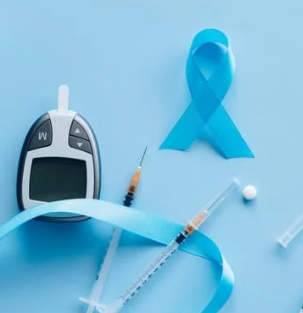Hello from a warm and rainy Boston! I cannot believe we are headed into March and approaching the two-year mark from when the pandemic struck and we decamped the Azara offices to support you from the safety of our homes. I once again want to acknowledge the hard work of those of you on the front lines and the sacrifice you have made in an effort to keep your patients healthy and well cared for. As we exit UDS Season, I wanted to take a moment to reflect on my observations of this year’s UDS filing period in a post that I recycle and update annually.
It is my sincere hope that this year’s filing was easier than last year’s and you felt more confident than ever about your submission. After eleven years at Azara, I have come to expect the controlled and sometimes, not so controlled frenzy in our office this time of year. Of course, this year I lacked most of the in-person visibility to that activity, with the exception of the few members of our team, including me, who occasionally look for a change of scenery and come to the office during the workday. However, based on the data and reports, I remain in awe of the sheer volume of work that was completed by the Azara team between December 1 and the February 15th filing deadline.
For Azara, a company that specializes in data reporting and analytics (including UDS) for Community Health Centers, this period is, by far, our busiest time of year. This year, the number of UDS-related questions and support requests increased, but less significantly than in past years. Tempers—of both our clients and our staff—sometimes flare, and we dedicate extra staff and hours to ensure we support all our clients promptly. Almost everyone in the company pitches in to help with UDS—and those, like myself, not qualified to answer client questions do other Azara things while hanging out to show support for the team
UDS this year was again different than past years. With the Omicron surge, many of our clients’ priorities were elsewhere. HRSA was not issuing any free passes due to COVID, but we did not see the ticket volume we anticipated and prepared for, nor did we experience any widespread panic, last-minute madness, or the caffeine-fueled craziness that we’ve experienced in our earlier years. Plenty of clients needed assistance, had questions, or needed something fixed, but with COVID surging and health centers focused on caring for sick patients and administering additional vaccines and boosters, it was more methodical and routine.
In light of the unique environment we are dealing with, I did what I do every year for this blog: I sought answers in the data. Our team received 1,474 UDS-related support tickets in the 3.5 months preceding Feb 15th. To give this some perspective, I looked at our historical support logs and ticket volumes and discovered that our UDS 2021 ticket volume actually decreased by 10% over last year despite the addition of nearly 80 new FQHC clients in 2021. This is the first time in our 12-year history we have seen an annual decrease in UDS related tickets. We are still digging into the details, but my gut tells me the decrease is a combination of a few factors: better prepared clients, increased day to day usage and reliance on DRVS data and COVID-related priorities/distractions, but we will wait for the full analysis to properly explain this drop.
In aggregate, these numbers tell me that we (Azara and our clients) are making progress. Our clients are getting a better handle on their data, following their UDS numbers throughout the year and are doing a better job of incorporating data into their everyday health center operations. I often tell Azara clients and prospects: “Those who use their data the most have the best data.” I feel UDS Season is akin to the annual achievement test of this mantra; while I can’t state empirically that this year’s achievement scores rose for all our clients, I’m confident the average increased again.
Clients that use their DRVS data (or any reporting tool) as part of their daily routine are typically well prepared to report UDS, and find minimal discrepancies with their numbers and performance. This isn’t surprising because they’ve been viewing data and reports regularly throughout the year—some reports daily. By doing so, these clients can identify data discrepancies early—whether process or product related —and can make fixes well in advance of UDS submission deadlines. In fact, clients that use Azara’s Patient Visit Planning (PVP) report as part of their care planning and delivery are consistently in a much better position than those who don’t, because the DRVS data is already part of their daily workflow.
In fact, clients that use Azara’s Patient Visit Planning (PVP) report as part of their care planning and delivery are consistently in a much better position than those who don’t, because the DRVS data is already part of their daily workflow.
Data quality and fidelity requires ongoing vigilance. All care providers must promptly and adequately document the care they deliver so they can receive proper credit for their work. In 2018, Azara introduced a set of Data Quality Dashboards with a related group of Measures and Reports to help identify bad EHR data entry or anomalies in data source submissions and we have continued to enhance them. If you have not seen these reports, I encourage you to take a look next time you login to DRVS. Just as a salesperson keeps score by tallying up total sales, providers who regularly monitor their performance know where they stand long before year’s end. They also know—early in the year—if adjustments in processes are needed to improve the full year’s outcomes.
Congratulations to those of you who finished your UDS submission with less effort, pain, and angst than last year. Take comfort in knowing your year-round hard work has paid off. A big shout out to the Azara Team, as they have lowered our average time to close UDS tickets again this year and exited UDS “Season” with an average customer satisfaction score of 4.8/5.0.
Lastly, a public service notice to all of you: “It’s not too early to think about next year’s UDS”. Look at your data early and often. Make it part of your workflow. Review the Azara Data Quality and Data Fidelity Webinar (DRVS Help Section) for some useful tips and tricks and don’t be shy about asking your network, PCA or Azara for help
Related Articles

Turning Every Encounter into Value: How Azara's EHR Plug-In Elevates Risk Adjustment at the Point of Care
Explore Insights
Value-Based Care Foundations Part 2: A New Chapter in Risk Adjustment
Explore Insights
